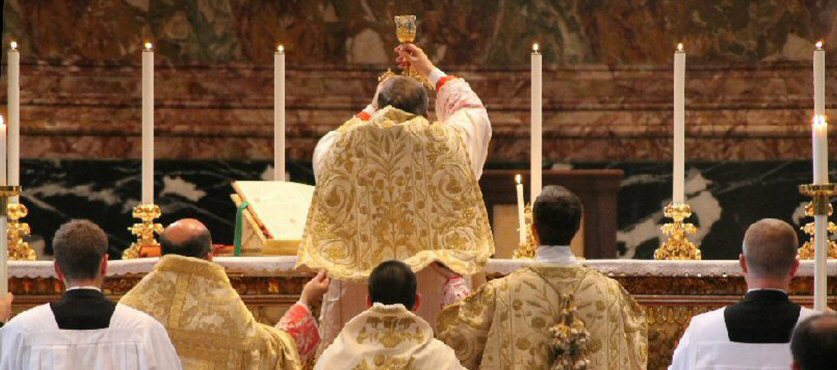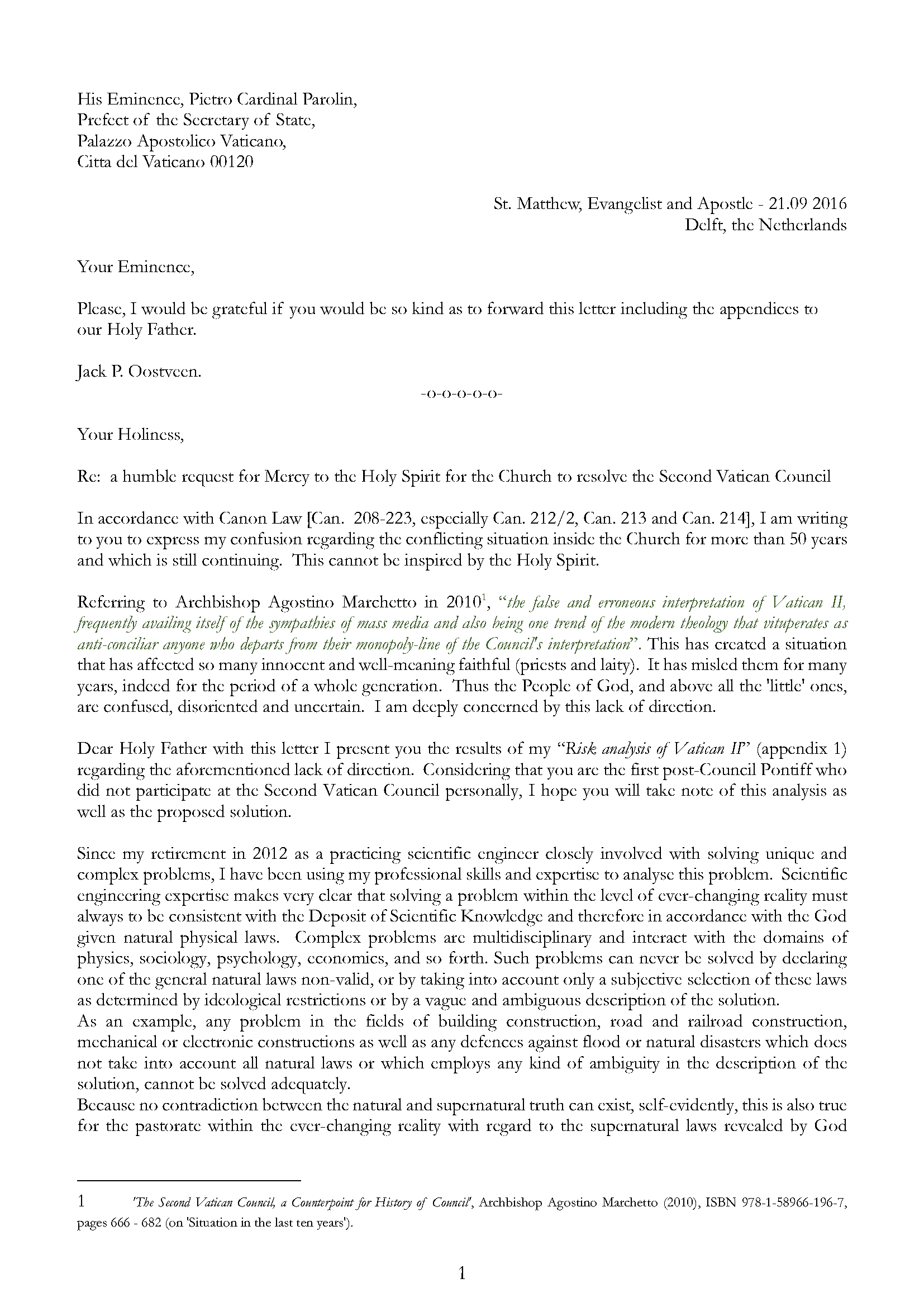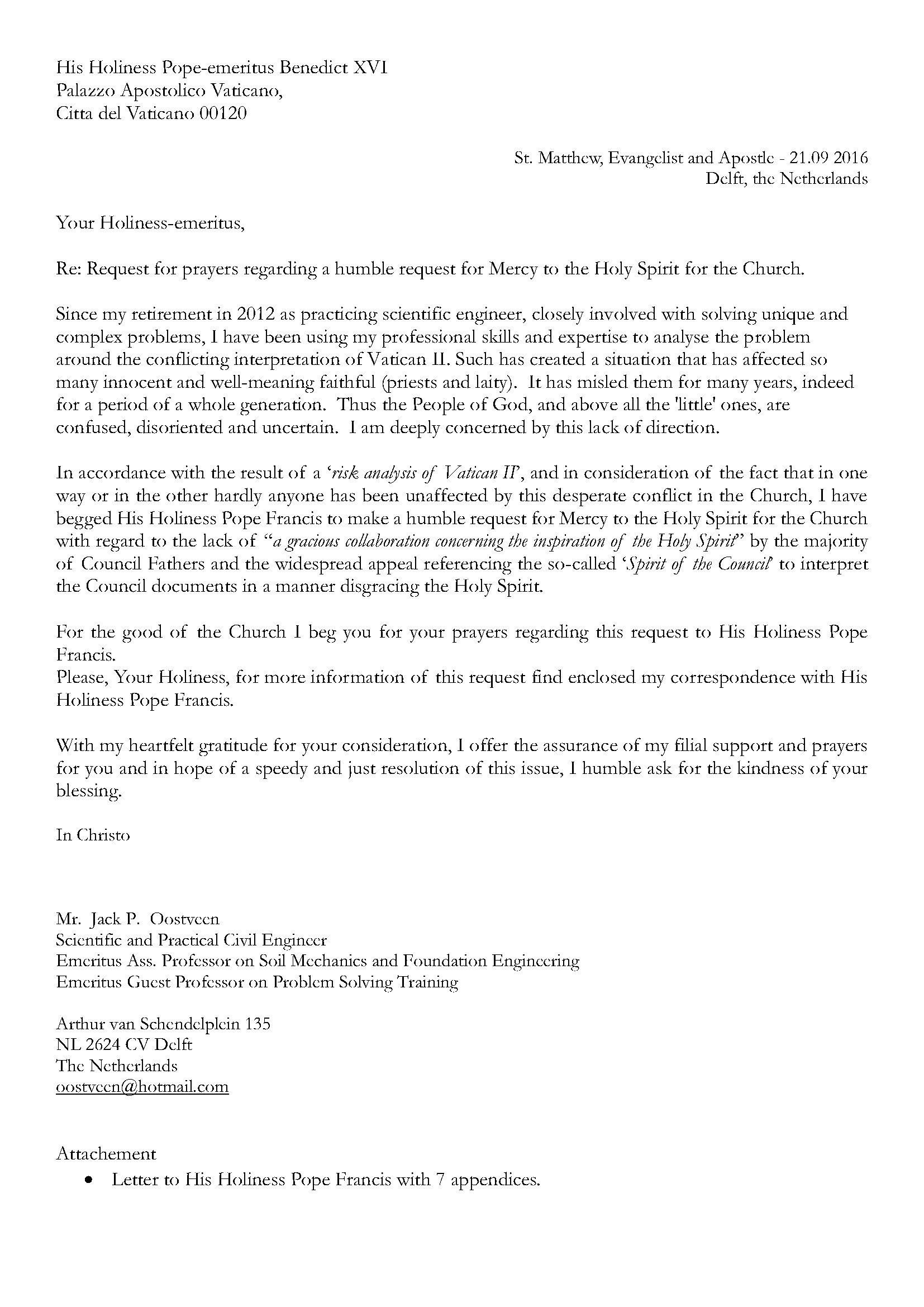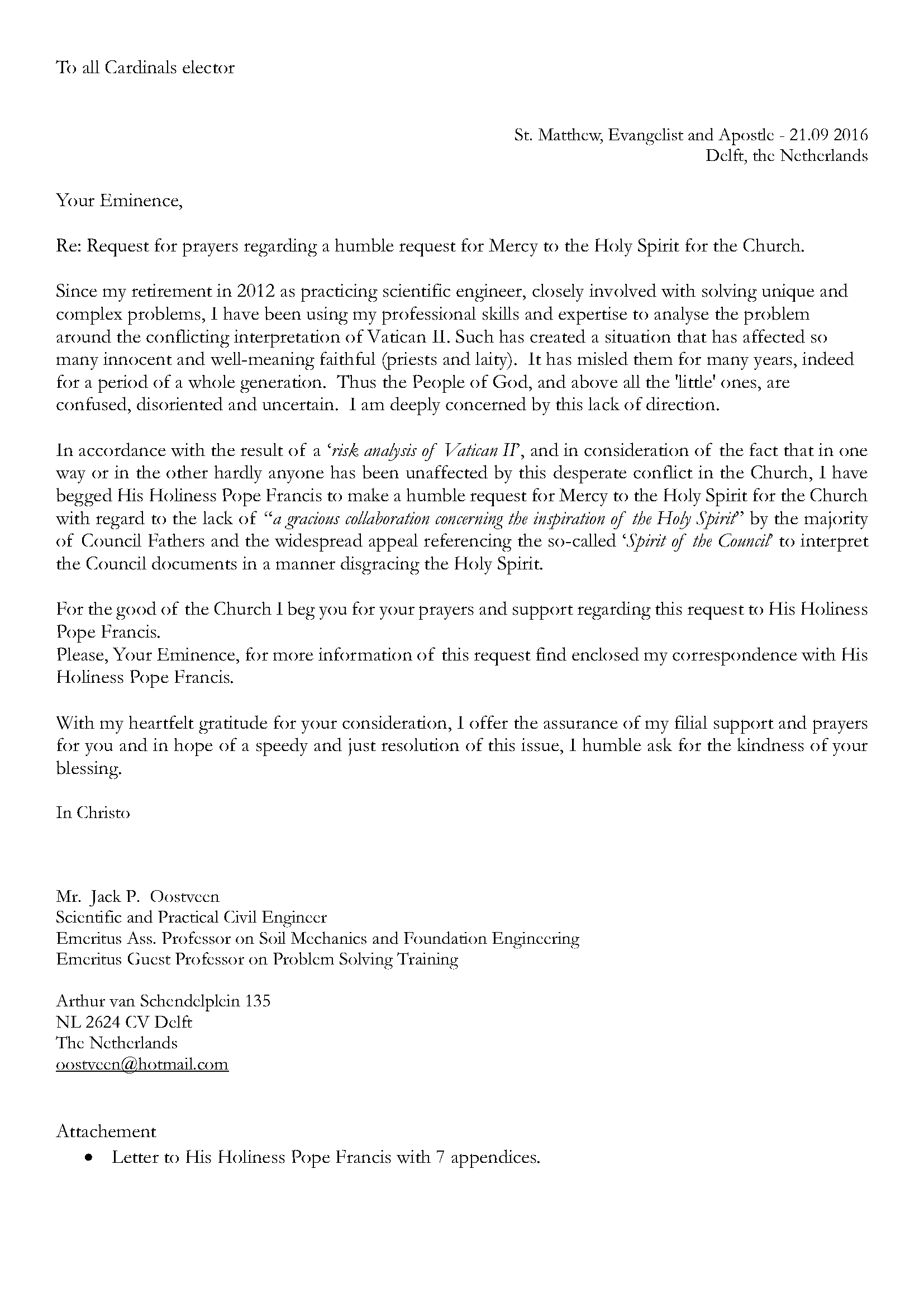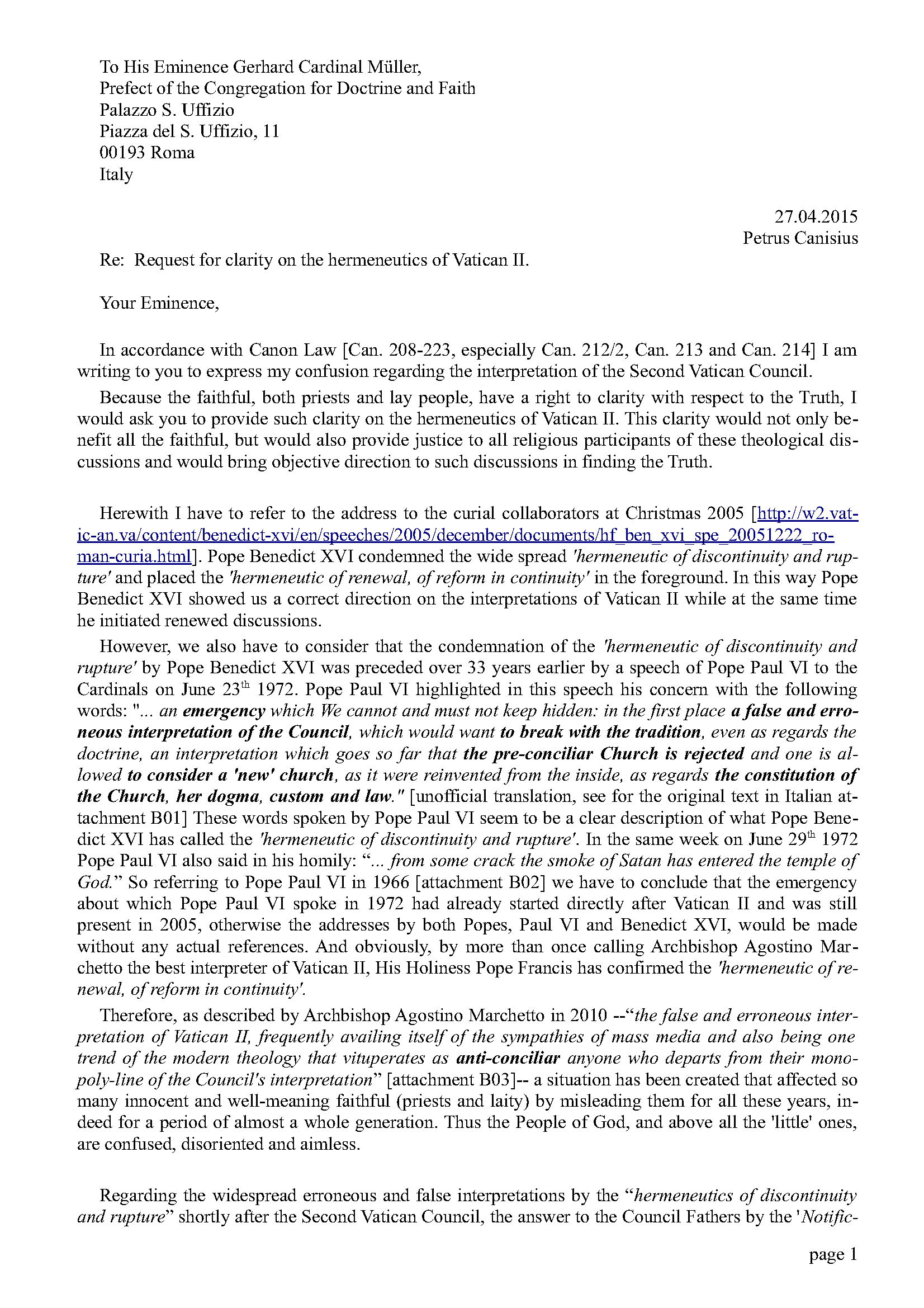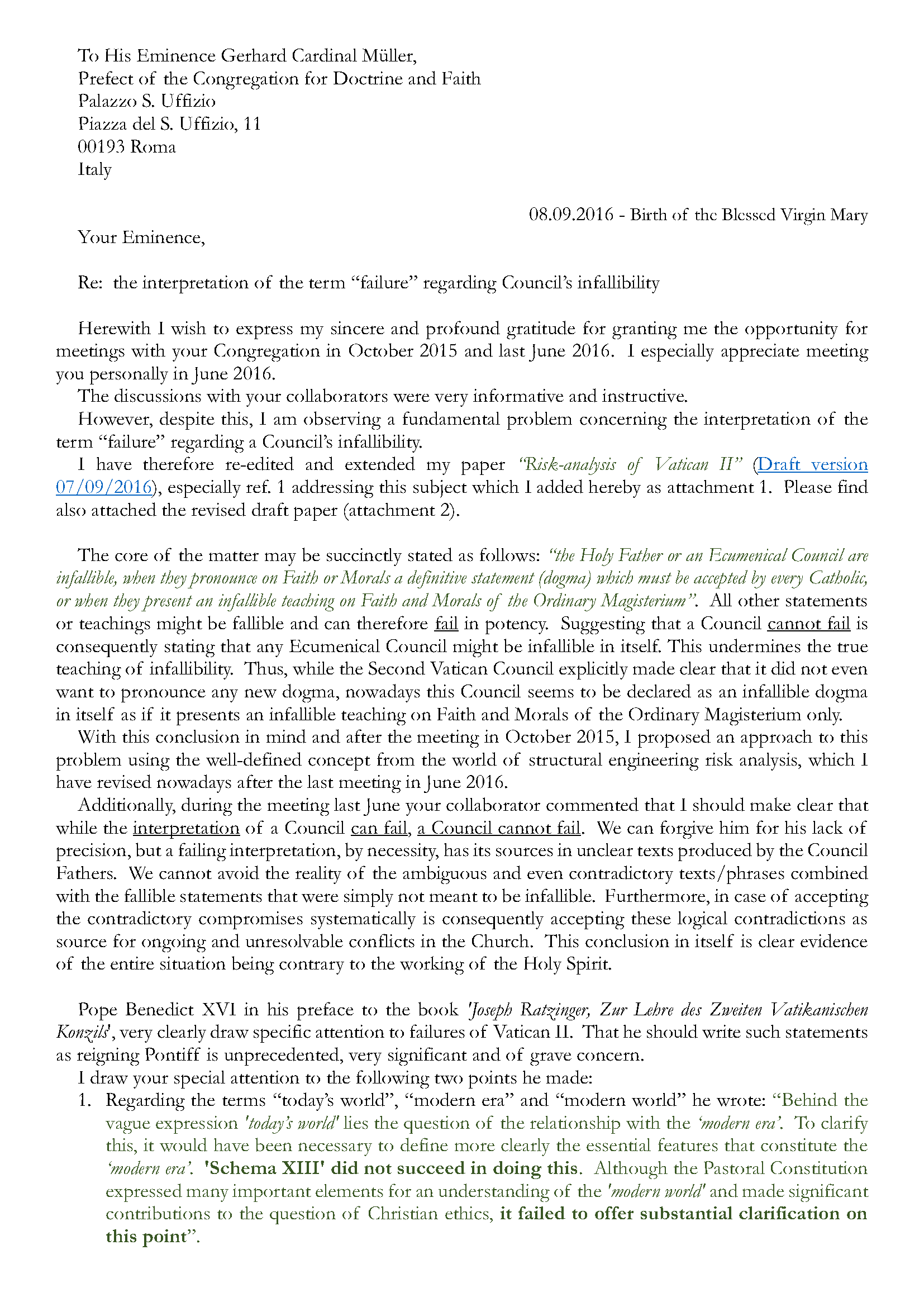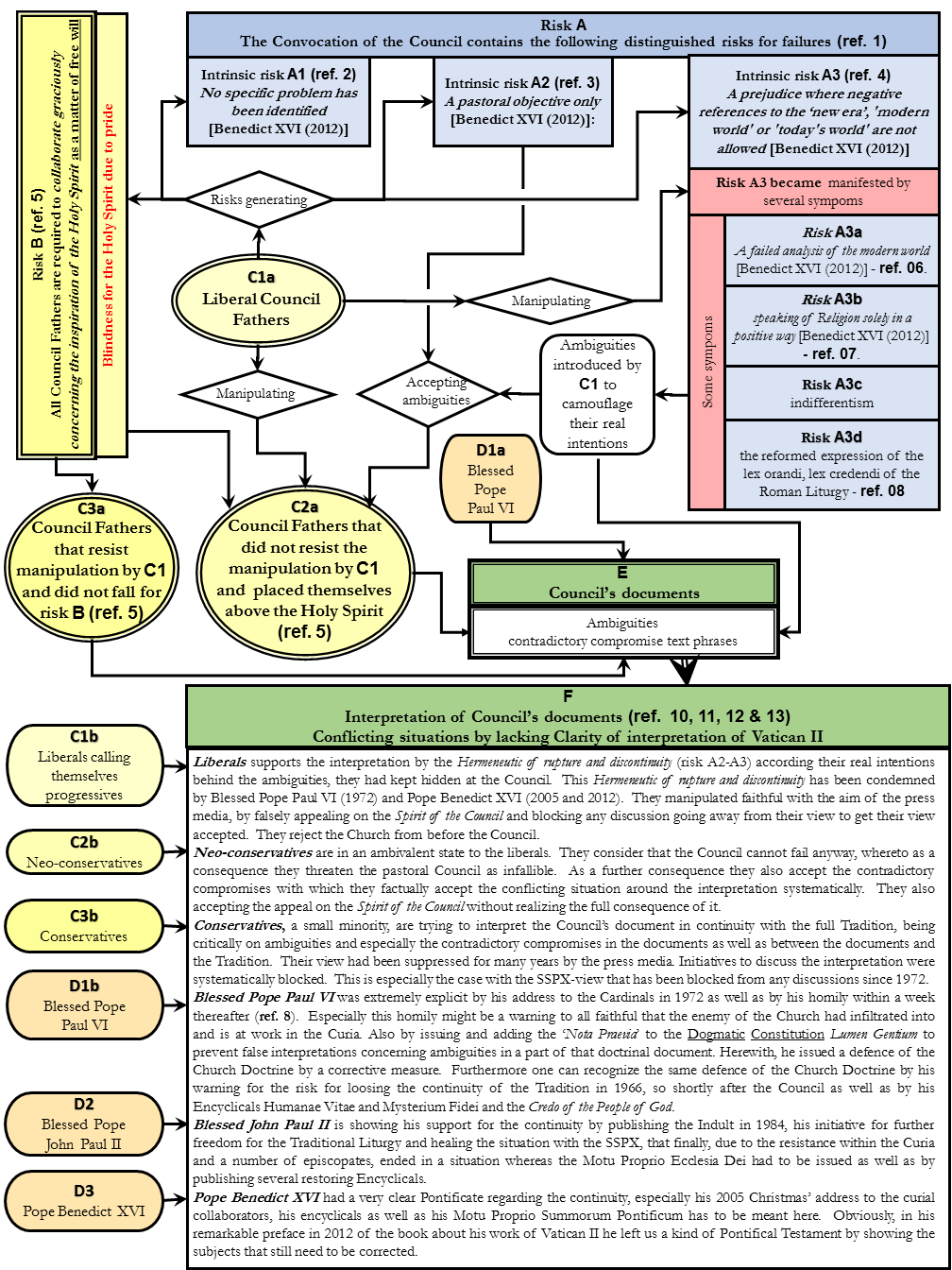| HOME | Automatic translations select here your language |
Letters to Rome
Recently, last September 21th and unknown of the Dubio that was sent to His Holiness Pope Francis by four Cardinals, a letter was sent to His Holiness begging him to make a humble request for Mercy to the Holy Spirit for the Church.
Obviously, it has to be concluded that the emergency about which Blessed Pope Paul VI spoke in 1972 had manifested itself already shortly after Vatican II in the opposition to the encyclicals Mysterium Fidei and Humanae Vitae, as well as the Credo of the People of God. Similarly, it has remained a factor during all post-Council Pontiffs, Pope John Paul I, Pope John Paul II and Pope Benedict XVI, and even when you became the reigning Pontiff. This has affected so many faithful so deeply. Furthermore looking at the large numbers of ambiguities as well as the contradictory compromise text phrases in the Council’s documents as a source for many conflicts even in today’s Church, it is imperative that the real problem should be identified. This problem was and remains the lack of “a gracious collaboration concerning the inspiration of the Holy Spirit” by a majority of the Council Fathers and the widespread appeal referencing the so-called “Spirit of the Council” to interpret the Council’s documents in a manner that disgraces the Holy Spirit. Please, Your Holiness, in accordance with the results of this risk-relationship analysis, and in consideration of the fact that in one way or the other hardly anyone has been affected by this desperate conflict in the Church, I beg You to make a humble request for Mercy to the Holy Spirit for the Church with regard to the lack of “a gracious collaboration concerning the inspiration of the Holy Spirit” by the majority of Council Fathers and the widespread appeal referencing the so-called ‘Spirit of the Council’ to interpret the Council documents in a manner disgracing the Holy Spirit. This is strongly proposed as absolutely necessary for resolving the conflicting situations inside the Church which still continues since the close of Vatican II for more than 50 years ago. This proposal may well be necessary for corrective measures to come into full effect as well as to achieve the convoked objective of the Council, i.e. the “New-Evangelisation”.
Besides this letter to His Holiness Pope Francis at the same date a letter has been sent to His Holiness Pope-emeritus Benedict XVI for a request of his prayer regarding the the request to Pope Francis. The same has been done in a letter sent to all 110 Carinals-elector.
Furthermore during the proces upto this request to His Holiness Pope Francis in the recent past two more letters has been sent to the Congregation for Doctrine of Faith. * Firstly a letter for Clarity on Vatican II, how to interpret the Council documents. * Secondly a letter discussing the fallibilty and infallibility of Vatican II.
